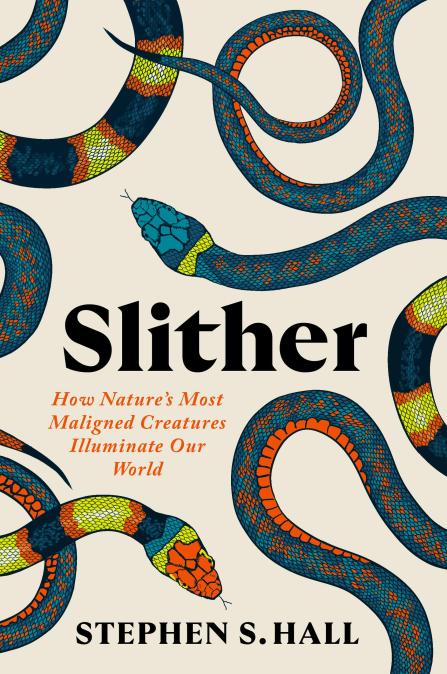Shopping Cart
Slither
How Nature’s Most Maligned Creatures Illuminate Our World
Description
In this “important and pioneering” (The New York Times Book Review) book, a science writer reintroduces readers to The Snake, encouraging our initial reaction to the slithery creature to be one of awe rather than disgust.
For millennia, depictions of snakes as alternatively beautiful and menacing creatures have appeared in religious texts, mythology, poetry, and beyond. From the foundational deities of ancient Egypt to the reactions of squeamish children today, it is a historically commonplace belief that snakes are devious, dangerous, and even evil. But where there is hatred and fear, there is also fascination and reverence. How is it that creatures so despised and sinister, so foreign of movement and ostensibly devoid of sociality and emotion, have fired the imaginations of poets, prophets, and painters across time and cultures?
In Slither, Stephen S. Hall presents a naturalistic, cultural, ecological, and scientific meditation on these loathed yet magnetic creatures. In each chapter, he explores a biological aspect of The Snake, such as their cold blooded metabolism and venomous nature, alongside their mythology, artistic depictions, and cultural veneration. In doing so, he explores not only what neurologically triggers our wary fascination with these limbless creatures, but also how the current generation of snake scientists is using cutting-edge technologies to discover new truths about these evolutionarily ancient creatures—truths that may ultimately affect and enhance human health.
Newsletter Signup
By clicking ‘Sign Up,’ I acknowledge that I have read and agree to Hachette Book Group’s Privacy Policy and Terms of Use
Praise
—David Quammen, award-winning author of Breathless
—Leila Philip, New York Times bestselling author of Beaverland
"An important and pioneering book." —New York Times Book Review
“A comprehensive and thought-provoking book that examines the difficult topic of wisdom in a fair—even wise—manner.” —Science News
